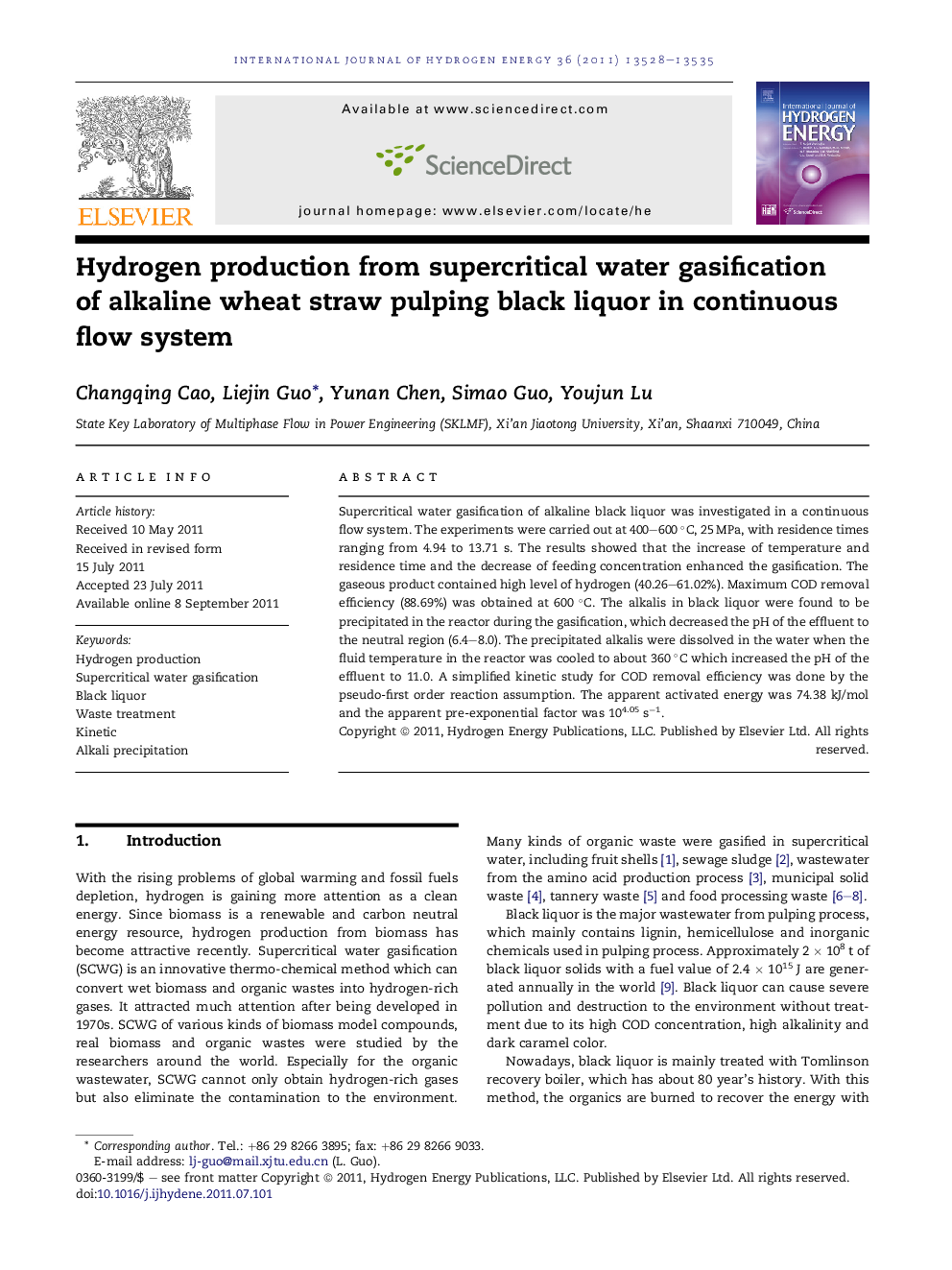| Article ID | Journal | Published Year | Pages | File Type |
|---|---|---|---|---|
| 1278695 | International Journal of Hydrogen Energy | 2011 | 8 Pages |
Supercritical water gasification of alkaline black liquor was investigated in a continuous flow system. The experiments were carried out at 400–600 °C, 25 MPa, with residence times ranging from 4.94 to 13.71 s. The results showed that the increase of temperature and residence time and the decrease of feeding concentration enhanced the gasification. The gaseous product contained high level of hydrogen (40.26–61.02%). Maximum COD removal efficiency (88.69%) was obtained at 600 °C. The alkalis in black liquor were found to be precipitated in the reactor during the gasification, which decreased the pH of the effluent to the neutral region (6.4–8.0). The precipitated alkalis were dissolved in the water when the fluid temperature in the reactor was cooled to about 360 °C which increased the pH of the effluent to 11.0. A simplified kinetic study for COD removal efficiency was done by the pseudo-first order reaction assumption. The apparent activated energy was 74.38 kJ/mol and the apparent pre-exponential factor was 104.05 s−1.
► Supercritical water gasification (SCWG) of black liquor was studied in continuous system. ► SCWG decontaminated black liquor in COD, the color and the pH values. ► Influence of temperature, residence time and concentration were studied. ► Precipitation of alkali salts were found and verified. ► Simplified kinetic study was done and the reaction equation was achieved.
